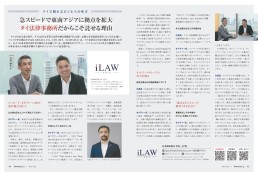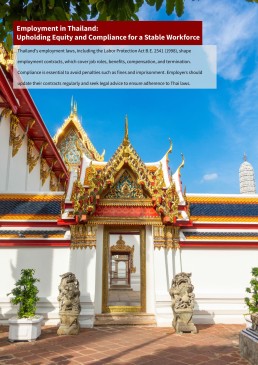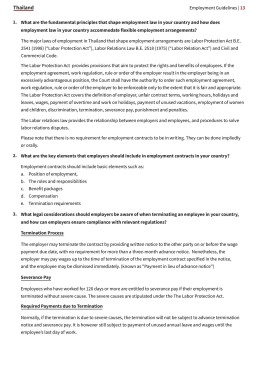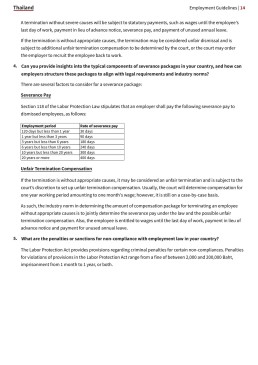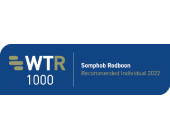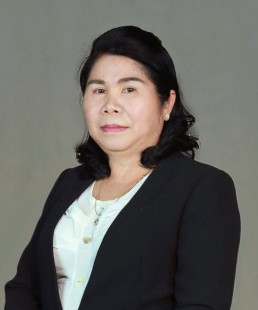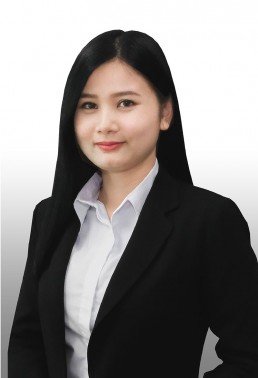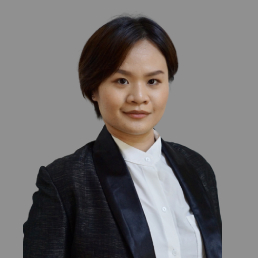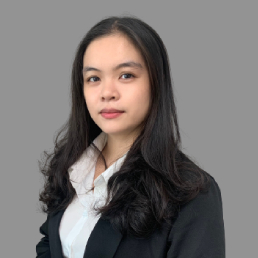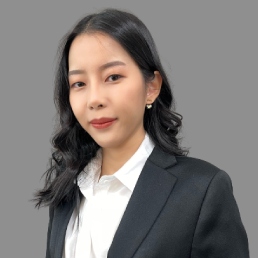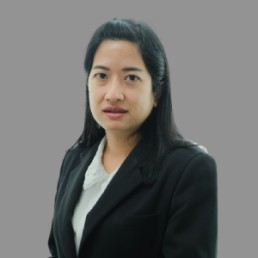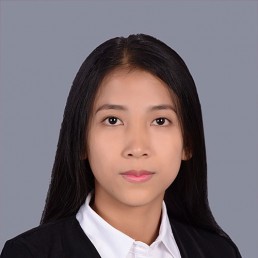Top 10 Trademark Firms in Thailand 2024, by Trademark Lawyer Magazine
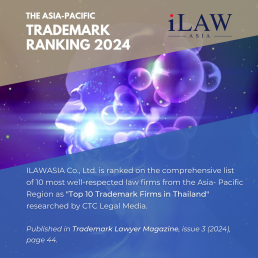
ILAWASIA is honored to be ranked among the top 10 most well-respected law firms as one of the “Top 10 Trademark Firms in Thailand 2024.” This recognition was researched by CTC Legal Media and published in Trademark Lawyer Magazine, Issue 3 (2024), page 30.
For more details at : https://trademarklawyermagazine.com/wp-content/uploads/2024/07/TML0324_interactive.pdf
#TheTrademarkLawyer #tademarklaw #trademarks #IPlaw #IP
Asia Super 50 Disputes Lawyers 2024
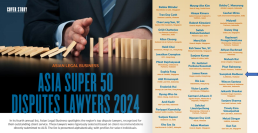
ILAWASIA Co., Ltd. and AECCI Announce Strategic Partnership to Expand Legal Services for Exporters and Importers
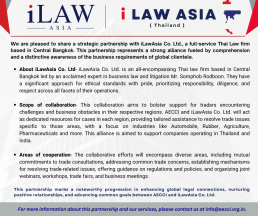
Bangkok, Thailand – [2024, 16 July] – ILAWASIA Co., Ltd. is thrilled to announce a dynamic partnership with AECCI (Asian Exporters’ Chamber of Commerce and Industry), marking a significant milestone in our journey to provide specialized legal services to exporters and importers. This collaboration, led by our esteemed Managing Partner, Mr. Somphob Rodboon, is designed to extend our business reach and enhance our service offerings.
The strategic partnership with AECCI enables ILAWASIA Co., Ltd. to leverage combined expertise and deliver comprehensive legal solutions tailored to the unique needs of traders. Our joint efforts will focus on providing high-quality legal services in various domains, including corporate and commercial law, litigation, and alternative dispute resolution.
“We are excited about this partnership as it represents a significant step towards strengthening our market presence and enhancing the value we provide to our clients,” said Mr. Somphob Rodboon. “Together with AECCI, we are committed to offering exceptional legal support to help businesses navigate the complexities of international trade.”
This collaboration underscores ILAWASIA Co., Ltd.’s dedication to fostering growth and delivering unparalleled legal services to the global trading community. We look forward to a fruitful partnership with AECCI and the positive impact it will bring to our clients.
About ILAWASIA Co., Ltd.:
ILAWASIA Co., Ltd. is a leading law firm based in Bangkok, Thailand, specializing in business and international law. With a strong focus on corporate and commercial law, litigation, and alternative dispute resolution, we provide tailored legal solutions to meet the diverse needs of our clients.
About AECCI:
AECCI is a premier business organization dedicated to supporting exporters and importers with a range of services aimed at facilitating international trade. Through strategic partnerships and a commitment to excellence, AECCI helps businesses thrive in the global marketplace.
Contact Information:
For media inquiries, please contact: info@ilawasia.com
For more information about ILAWASIA Co., Ltd., please visit https://ilawasia.com/
For more information about AECCI, please visit https://www.aecci.org.in/collaboration-Thailand/
Three ILAWASIA Partners Recognized in WIPR Leaders 2024.

Somphob Rodboon, Managing Partner, ILAWASIA ; and Pollawat Suppattarasaet, Dr., IP Partner and Patent Agent, ILAWASIA; and Vicheka Lay, Partner, ILAW Cambodia Law Office.
WIPR Leaders is a one-stop guide to the leading IP practitioners in the world. The handbook lists over 2000 lawyers across patent, trademark, and copyright practices.
Following an extensive nomination period, the research team vetted the nominated lawyers for suitability by exploring their work by looking at practice history, industry expertise and notable cases, as well as additional activities, which have allowed the lawyers to shape and influence other and future IP practitioners.
#WIPR #WIPRLeaders #WIPRLeaders2024
Best Modern Full-Service Law Firm in Thailand for the year 2024

ILAWASIA is proud to announce that the firm has been awarded the Best Modern Full-Service Law Firm in Thailand for the year 2024. This prestigious recognition was presented at the Corporate Excellence Awards, as surveyed by CorporateVision magazine in their issue 6/2024.
This accolade reflects ILAWASIA’s commitment to excellence, innovation, and client satisfaction in the legal industry. More information is at: https://www.corporatevision-news.com/winners/ilawasia/
Press Interview : ILAWASIA is expanding its base in Southeast Asia at a rapid pace - Why you can entrust it to us as a Thai law firm.
ThaiBiz magazine recently conducted an interview with Tanadee Pantumkomon, a partner at ILAWASIA, and Gensei Ohama, a Japanese attorney-at-law.
The discussion centered around ILAWASIA’s recent expansion, developments within the current year, and the firm’s approach to embracing new opportunities for the future. This insightful conversation sheds light on why ILAWASIA is trusted as a leading Thai law firm.
#ILAWASIA #ThaiBiz #LegalInsights
For more details at : https://th-biz.com/ilawasia-202405/
The 2024 Benchmark Litigation Rankings are revealed

The 2024 Benchmark Litigation Rankings are revealed
The 2024 Benchmark Litigation Rankings have been unveiled, showcasing the outstanding achievements of legal practitioners across the Asia-Pacific region following an extensive research process.
We are delighted to announce our placement in the Benchmark Litigation Asia-Pacific 2024 Rankings in the Commercial and Transactions category, where we have been ranked in Tier 3.
Additionally, we have received notable recognition in various other categories such as Government and Regulatory, Intellectual Property, and Trade and Customs.
These rankings not only highlight our firm’s expertise and capabilities but also provide valuable insights for users of the guide seeking the region’s top litigators and dispute resolution firms. We are proud to be acknowledged in these prestigious rankings and remain committed to delivering exceptional legal services to our clients.
Employment Law Guidelines 2024
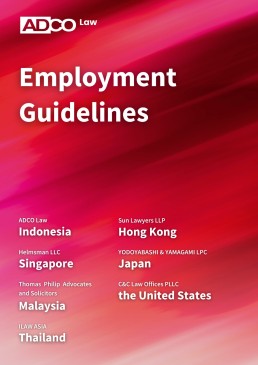
In honor of International Labor Day, ILAWASIA is pleased to announce our collaboration with ADCO Law to present the Employment Law Guidelines specific to Thailand’s jurisdiction. These guidelines offer a comprehensive understanding of employment regulations across various jurisdictions, empowering businesses to navigate the complexities of international ventures efficiently.
Through strategic partnerships, ADCO Law has united with esteemed firms to provide comprehensive insights into employment regulations across select jurisdictions. Our esteemed partner, Tanadee Pantumkomon, along with Senior Associate Kridtaporn Sirisereephap, has contributed their expertise to these guidelines.
For more detailed information on each jurisdiction, we invite you to explore the following link: https://adcolaw.com/blog/thailand-employment-in-thailand-upholding-equity-and-compliance-for-a-stable-workforce
Thailand Law Firm Awards 2024
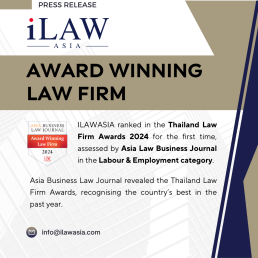
ILAWASIA has recently achieved a significant milestone by being recognized in the Thailand Law Firm Awards 2024 for the first time. This prestigious acknowledgment was bestowed upon us by the esteemed Asia Law Business Journal, specifically in the highly competitive Labour & Employment category.
This recognition reflects our commitment to excellence and our dedication to providing top-notch legal services to our clients in the field of labour and employment law. We are honored to receive this award and will continue to uphold the highest standards of professionalism and expertise in our legal practice.
Somphob Rodboon is granted the award of "Asia Pacific Legal Advisor"
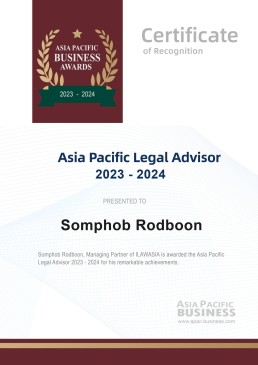
Somphob Rodboon, Managing Partner of ILAWASIA is granted the award of Asia Pacific Legal Advisor, in recognition of his outstanding performance and dedication to business and industries in the Asia-Pacific region.
The Asia Pacific Business Awards recognize companies and organizations headquartered in the Asia-Pacific region, multinational corporations (MNCs) in APAC, entrepreneurs, CEOs, presidents, senior executives and advisors for their professionalism, performance and leadership in uncertain times.
This award not only recognizes companies and executives delivered outstanding performance, but also the ones who have made significant contributions to the industries and society. This award is not just about the accolades, it is about sharing and inspiring. The goal of this award is to share common traits of the excellent business practitioners, shining a light on these role models, and inspiring others to follow.






